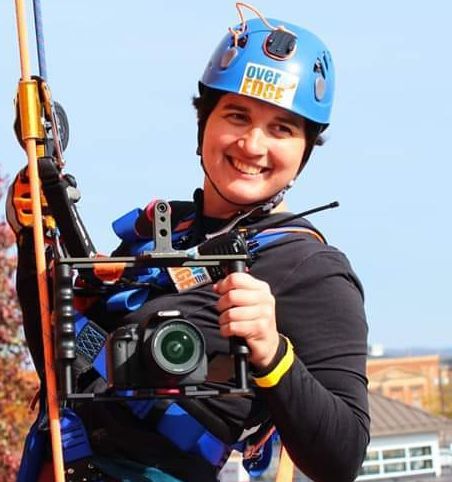After a lifetime of living with the effects of polio, Chris Tsai works hard to keep her disability from defining her life.
“People with disabilities do need to be empowered…. To be successful, you have to look at a person in all aspects,” Tsai said. “A lot of times it’s that perception that can make a big difference.”
Tsai is no stranger to hardship. At age 4, she contracted polio – a common disease in children before the 1980s, especially in her home country of Taiwan.
Polio is progressive virus that weakens the muscles and often affects the spine and causes paralysis.
“It did affect my arm and my one leg,” Tsai said. She now wears a total body brace, which includes her legs.
But Tsai is never one to complain about her situation. Even before college she knew that she wanted to help others with disabilities. At first, it was her dream to stay in Taiwan and help people with disabilities to find jobs and be given opportunities.
She came to the United States to study vocational rehabilitation at Penn State University. At first, Tsai intended to return to Taiwan, but after meeting a man she loved, soon got married. Regardless, Tsai realized that in American access to employment for those with disabilities was just as sparse.
She decided to stay and live out her dream in the States. Tsai has nothing but praise for the state Office of Vocational Rehabilitation where she has worked for over 20 years to help empower individuals with varying abilities to find support, empowerment and a connection with the community that many others take for granted.
As she began to tackle the issues and struggles faced by individuals with disabilities, Tsai not only saw that businesses are hesitant to hire people who are disabled, but more often an internal feeling of inadequacy can be even more detrimental to their success.
“They do not think that they are going to be granted an opportunity,” she said. “A lot of trouble shooting needs to be done before they can even go to work.”
Families who don’t prepare their children to work outside the home, even in a limited capacity, often set them up for hardship later on in life, Tsai said.
Unable to walk for long distances, Tsai travels with a scooter when she leaves her home. She doesn’t let her mobility limitations keep her from traveling around town, going to the park, or spending time with friends.
Smooth sidewalks and wheelchair ramps help her access locations with everyone else, but it’s her modified van that has helped Tsai stay connected to the rest of the world.
Fitted with wheelchair ramps on both sides of the vehicle, the van has a space large enough to store her scooter. In addition to a modified seat that brings her closer to the pedals, the gas and brake pedals have been moved closer together since Tsai is only able to use one foot for either.
A fiercely independent woman, without the van Tsai would be confined to her home, or dependent on friends or other transportation assistance to get around.
For Tsai, keeping her independence is key as she hopes to not be defined solely by her disability. She hopes to empower others to do the same, urging them to persevere.
“Don’t give up too easily. You need to set your goal and stick to your goal,” Tsai said. “Believe in yourself and keep going and you will get it, somewhere, someday.”





Chris,
Everyone should read this and understabd what you are going through. May I share this with the club or do you want to?
We miss you. It’s awful circumstances.
Connie